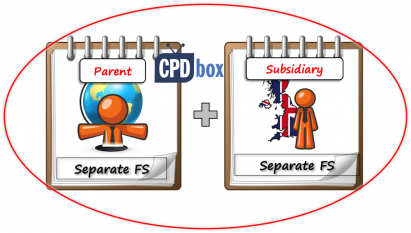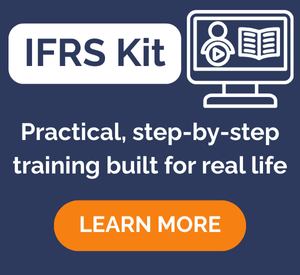Top 5 IFRS Changes Adopted in 2014
The year 2014 brought us some very significant changes in IFRS. While some changes might not give you a hard time to adopt, the other changes can cost you a lot of money and time to make them effective in your company. The year 2014…
IFRS 11 Joint Arrangements
Joint venture or joint operation? What is joint control? How to account for joint arrangements? In our consolidation series, we have already covered investments in subsidiaries (IFRS 3 and IFRS 10), associates (IAS 28) and other financial instruments. Today, we’ll take a look at the…
IAS 28 Investments in Associates and Joint Ventures
Let’s focus on associates, joint ventures, significant influence and equity method today. You have already learned various aspects of having control over some investment: how to identify it, how to account for it and we also learned basic consolidation procedures step by step. It was…
Example: How to Consolidate
Updated in 2025: Step-by-step solved example of consolidation under IFRS 10 with video. You will learn exactly WHAT you are doing and WHY you are doing this. If you apply this systematic method, your balance sheet will always BALANCE with no errors.
IFRS 3 Business Combinations
When should you apply IFRS 3 and when IFRS 10? What is the difference between IFRS 3 Business Combinations and IFRS 10 Consolidated Financial Statements? Today, I’d like to continue our “consolidation” series and after the introductory lesson and the summary of IFRS 10, let’s…
IFRS 10 Consolidated Financial Statements
In my previous article I introduced the world of group accounts and consolidation to you. You learned that there about 6 IFRS dealing with this topic. Here, I’d like to summarize the first “consolidation” standard dealing with the consolidated financial statements: IFRS 10. What is…
IAS 21 The Effects of Changes in Foreign Exchange Rates
These days people use about 180 currencies world wide! The truth is that we, people, don’t want to stay isolated. We love to sell, buy, import, export, trade together and do many other things, all in foreign currencies! When you look at the business world,…
IAS 7 Statement of Cash Flows
Ignoring an accrual principle??? What?! No way! That’s the basic accounting rule we should all follow! Yes, of course, you’re right. BUT: There IS an exception. The statement of cash flows. Preparing the statement of cash flows might become the biggest accountant’s nightmare. Why is…
Our machines are fully depreciated, but we still use them! What shall we do?
Do you work in the production company? And did you find out that some of your production assets are still in operation but they were fully depreciated? In this case, the original estimate of machinery’s useful life proved to be incorrect. Here’s one of the…
Top 5 IFRS 2014 and 2013 Changes
The year 2013 started off with some really significant IFRS amendments that you need to take into account when preparing your IFRS financial statements as at 31 December 2013. Although these changes should be applied in the year 2013 for the first time, you also…
Recent Comments
- Stephan on How to Account for Spare Parts under IFRS
- Bamikole Sikiru on IFRS 10 Consolidated Financial Statements
- Yamkela on How to Account for Decommissioning Provision under IFRS
- mohamed on How to Account for Spare Parts under IFRS
- KAREEM IBRAHEEM on Lease term when contract is for indefinite period
Categories
- Accounting Policies and Estimates (14)
- Consolidation and Groups (25)
- Current Assets (21)
- Financial Instruments (56)
- Financial Statements (54)
- Foreign Currency (9)
- IFRS Videos (74)
- Insurance (3)
- Most popular (7)
- Non-current Assets (56)
- Other Topics (15)
- Provisions and Other Liabilities (46)
- Revenue Recognition (27)
- Uncategorized (1)




